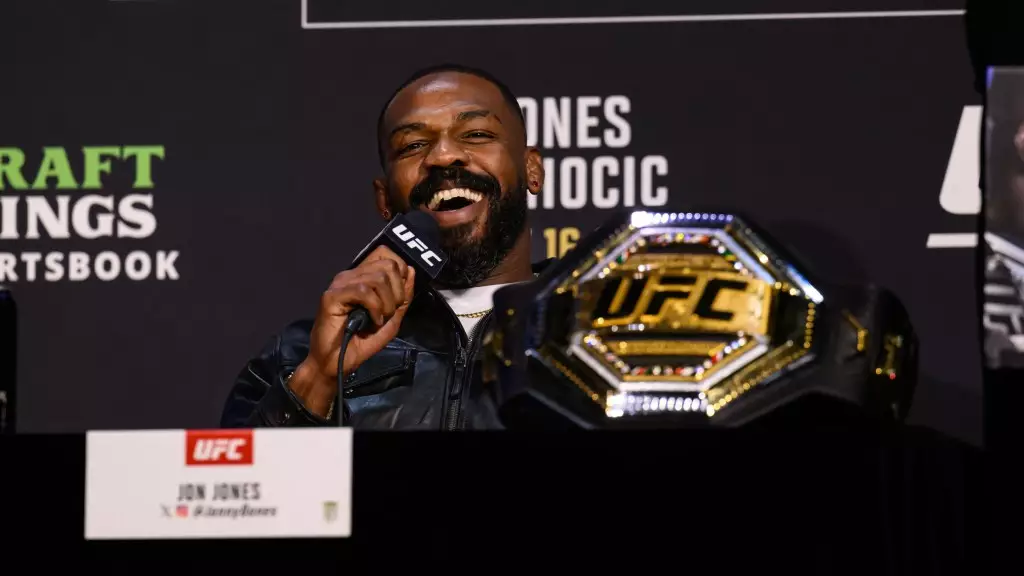The mixed martial arts community is often no stranger to heated discussions, especially when it involves titans like Jon Jones. Recently, former champion and current analyst Michael Bisping has voiced his concerns regarding Jones’ mentality in the wake of his successful title defense against Stipe Miocic at UFC 309. Although Jones delivered an impressive performance, securing a third-round TKO, Bisping scrutinizes Jones’ choice of opponents, likening his decision-making process to that of influencer-turned-boxer Jake Paul.
Jones’ victory over Miocic showcased a fighter at the peak of his abilities. He executed a decisive takedown early in the match and demonstrated his striking skills with a remarkable spinning back kick, which ultimately sealed the deal. Despite these accolades, Bisping views Jones’ reluctance to face upcoming competitors, particularly interim heavyweight champion Tom Aspinall, as a sign of weakness. In his analysis, he posits that while Jones is capable of breathtaking performances, his unwillingness to fight the most challenging opponents, who could potentially dethrone him, detracts from his legacy.
Bisping is not alone in his frustration; many fans and analysts echo his sentiments. The essence of competition in sports often revolves around facing adversity, and Bisping believes that Jones is navigating towards easier fights, compromising not only his legacy but also the excitement that comes with genuine competition.
The issue extends beyond Jones himself, as it reflects a broader trend within the sport. When elite fighters prioritize favorable matchups and financial incentives over competitive integrity, it raises questions about the state of mixed martial arts. Bisping notes that Jones mentioned he would only fight Aspinall if he received “f*ck you” money, a term that implies he values monetary gain over the spirit of competition. This transactional mentality is reminiscent of Jake Paul’s recent fight strategy, where he faced a significantly older opponent in Mike Tyson, avoiding the young and dangerous talents in the boxing ring.
Additionally, the notion of fighters taking on younger, hungry challengers is fundamental to boxing and MMA culture. Audiences often crave the narratives that pit seasoned fighters against rising stars, believing such matchups could potentially redefine the hierarchy in the sport. Bisping’s emphasis on the stark difference between drawing higher purses and engaging in tests of skill speaks volumes about how these choices impact fans and the athletic community at large.
Bisping’s reflections on Jones led him to a conclusion that there could be detrimental consequences should “Bones” continue down this path. While acknowledging Jones’ formidable talent, Bisping reiterated his belief that Aspinall could pose a significant challenge given the right opportunity. The question looms: will Jones embrace the risks associated with fighting opponents like Aspinall as his career progresses, or will he settle into a more lucrative but less challenging trajectory?
Jon Jones’ mindset and fight strategy represent a critical juncture in his career. While his skills are undeniable, how he chooses to navigate his future in the octagon will ultimately determine his legacy—the fighter who conquered all challenges, or the champion who shied away from the fight. The mixed martial arts community eagerly awaits his next move.

